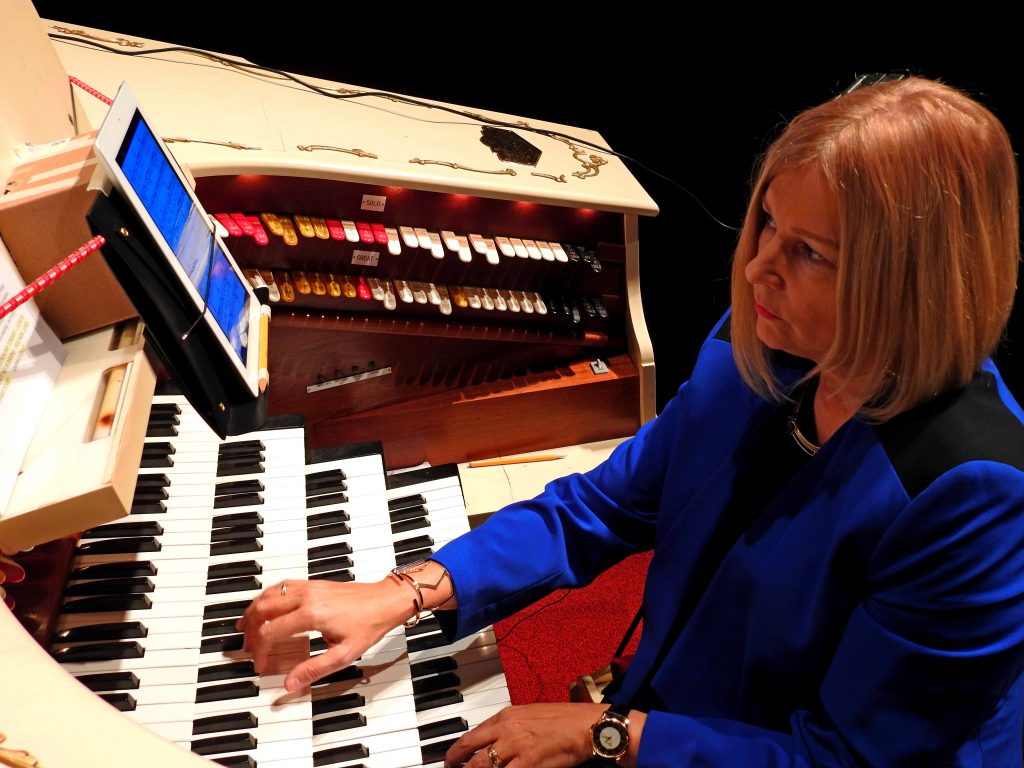For a group of local volunteers, a relic of the past has proven to be a unique aspect of Broome County’s cultural present.
Founded in 2004, the Binghamton Theatre Organ Society (BTOS) is a nonprofit dedicated to preserving the two publicly owned theatre organs in Broome County. While one of the organs, housed in the Roberson Museum and Science Center, is no longer in use, the Broome County Forum’s Robert-Morton IV/24 theatre organ is one of about 300 operating theatre organs in the world.
“We want to keep the instrument because of the volunteers that came before us; we don’t want to let it slide because a lot of people enjoy it,” said Nancy Wildoner, ‘83, resident organist for BTOS.
Starting in the 1910s and continuing through the 1920s, theatre organs were built so movie theaters wouldn’t have to hire entire orchestras to accompany silent films. Equipped with unique effects like bird calls and train whistles, they became obsolete with the advent of the “talkies,” movies with sound.
The Robert-Morton IV/24 originally belonged to a theater in Denver, Colorado in 1922, becoming obsolete when a sound system was installed in 1927. The organ was sold to a church, later being sold again and kept in storage in a Michigan chicken coop. In 1972, Robert Nash, then president of the former Binghamton Savings Bank, found out about the organ and purchased it for the Tri-Cities Opera. Sent in pieces, the organ was rebuilt by a team of local engineers working in conjunction with organ builder Albert Emola. Because the pipes of a theatre organ are built into the venue itself, it couldn’t be installed in any theater. Luckily, the historic Broome County Forum Theatre, built in 1919, fit the bill.
“For a small town like this, this is a lot of organ,” said BTOS President John Demaree. “When they rebuilt it, so many of the pipes that came in were scrapped and had to be replaced or repaired, and it’s got a different personality to it than it did when it was born.”
Dennis James, one of many theatre organ artists who tour with silent films, performed at the organ’s 1976 debut. James returned to the Broome County Forum Theatre this past weekend with “Love,” a silent film based on Leo Tolstoy’s “Anna Karenina.” James’ performances are interactive; before screening a film, he provides background on its history, and screenings include an intermission. When James tours with “Love,” he always asks audience members whether they’d rather see the ending true to Tolstoy’s novel or the alternate “happy ending” crafted by Metro-Goldwyn-Mayer Studios.
Wildoner studied on the Robert-Morton IV/24 under the late M. Searle Wright, a professor of music at Binghamton University in the early 1980s. A pianist since childhood, Wildoner started lessons on the organ before going to college.
“There were way too many piano majors, so I thought, ‘I’ll play the organ, not as much competition,’” Wildoner said.
During her time at BU, she was awarded a scholarship to work specifically with the theatre organ. While Wildoner academically studied classical and church music, organs were prevalent in the pop landscape of the ‘70s, so she also learned contemporary music in her free time. BTOS’ next event, “Pop Pipes: Women,” will feature Wildoner playing pop songs revolving around women in celebration of Mother’s Day.
According to the group’s website, BTOS will need to raise $250,000 over the next five years to restore the Robert-Morton IV/24 and an additional $250,000 to help rebuild the Link III/19 organ at the Roberson Museum and Science Center. Wildoner said the organization is looking to expand its volunteer and donor base by offering membership packages, where frequent attendees will get reduced tickets to events.
Marcia Blackburn, ‘09, an instructor of communications at Broome Community College, has been attending BTOS events for the past few years at both the Roberson Museum and Science Center and Broome County Forum Theatre. Looking back on her childhood, Blackburn remembers similar events at Radio City Music Hall, which were marketed as a novelty even in her parents’ time.
“This is something everyone should see because you don’t get this kind of experience anymore,” Blackburn said. “Most of the time people are streaming things, so you don’t get that experience of being with people in a theater reacting to a film. It’s a slice of life that doesn’t really exist anymore except in this special, rarefied location.”



